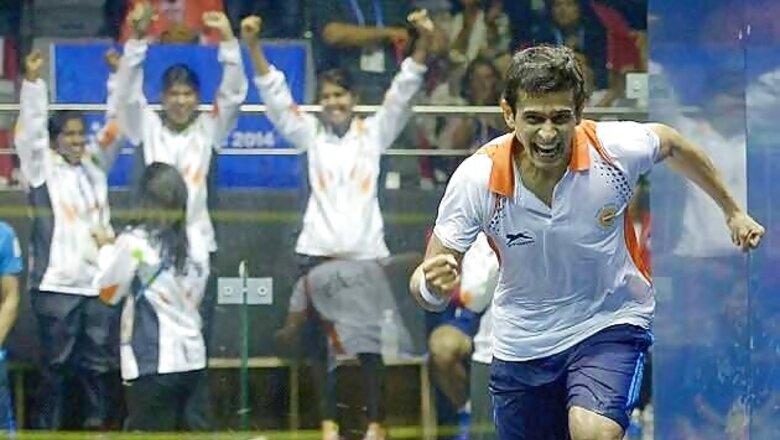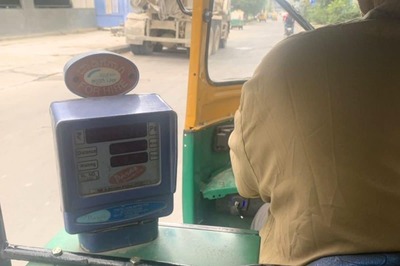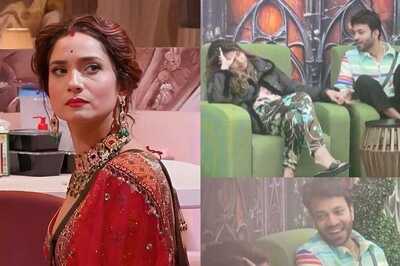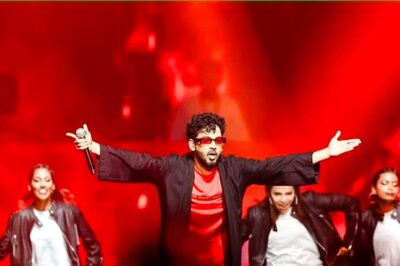
views
India's campaign at the 17th Asian Games 2014 at Incheon, South Korea, is finally over with its own twists and turns leaving many moments of glory, aching pains of defeat and a few protests making it a passionate drama of sorts amidst sporting endeavour.
Soon all the images that stirred our emotions will go into memory.
There was, of course, Mary Kom holding her gold aloft and Sarita Devi bitter with tears streaking down her cheeks for being deprived her moment of triumph. Saurav Ghosal's heart-wrenching loss when gold was there for the asking and his stirring fight to get his team the gold that he as an individual had missed. India's girls running like a steak of lightning to hold their supremacy in 4x100m relay race. Finally, PR Sreejesh carrying Indian hockey team to Rio Olympics in a game the boys made India proud. Men and women in kabaddi rounded off the Games with twin gold at the end.
In all India finished with 11 gold, 9 silver and 37 bronze making a tally of 57 medals at compared to 2010 in Guangzhou, China, where India finished with 14 gold, 17 silver and 34 bronze for a haul of 65 medals. It is disappointing as India failed to improve on 2010 results, which brings us to discuss what can India learn from Incheon 2014 that can be incorporated in future. Here are half a dozen of those:
1. Play to the strengths: A country's standing in the medals tally comes from the maximum number of gold won by it. Therefore, it becomes necessary to maximise our strengths to ensure we win as many gold medals we can. Competition will become more and more severe and hence improving on our strengths becomes an absolute necessity.
India could have added some more gold medals if it had sent its cricket teams for men and women. India are currently one-day cricket champions and it is surprising it could not send a team. Somehow this reeks of one-upmanship somewhere and this should not be allowed to continue. Hope this problem will be addressed and resolved with the cricket board, Indian Olympic Association and the Ministry of Sports. Country's call comes first and that must supersede all other calculations of individual boards or federations.
2. Best should represent: India should make sure it's best represented at the Games to swell the medal prospects. Individual rankings, standings are no doubt important. But is it too much to expect a player spares time for a week or so to represent his/her country in an event that happens once in four years? Sania Mirza showed that it is possible to do so and that she did it on her own volition deserves high praise. Patriotism is quietly doing such small things rather than chest-thumping that only creates noise. Earning a few more points to help improve rankings is fine but giving bit of one's time and effort once in a while for the sake of the country is important too. This issue must be addressed and solved so that la de crème represent the country.
3. Responsive and responsible officials: Sometimes our athletes and players are forced to spend time sorting out administrative matters, a time that could well be spent in fine-tuning their training and focusing on their events. Last-minute approvals from Ministry, equipment that does not reach in time or reach in wrong place, visa delays, etc., are some of the issues that continue to dog our sports even now. For example, Olympics' gold medallist Abhinav Bindra aired his frustration when his visa papers were not handled properly. He had to dash back and forth under tension that deprived him of precious practice and crucial acclimatisation time. Few years ago such lapses were commonplace and understandable. Now software written by Indians run the London underground tube trains, maneuvers of a split-second places MOM in Mars orbit. Software companies can make a checklist which is guaranteed 100 per cent with backups incorporating provisions for delays, unknown factors, etc. IOA should function as an efficient organisation which will definitely boost overall performance of our athletes and teams as well. The officials must take responsibility at the games and at the arena itself and must be seen to be supportive of athletes who should always be their first priority.
4. Improve from bronze: A cursory glance at the medals tally indicates India is among very few countries who have garnered large number of bronze medals. It distinguishes India from many also-ran countries and for this, credit should go to individual federations and IOA itself. Operating as they are on a shoe-string budget courtesy government, which still sees sports as something not very important in its scheme of things, they have done remarkably well to lift performances of our athletes to grudgingly honourable levels. Silver is within striking distance in many disciplines but the road ahead is extremely difficult and arduous which needs all-round efforts. Better training can definitely work wonders as discus-thrower Vikas Gowda, who trains in the US, has shown.
5. Strategise some disciplines: India has to lay special emphasis in some disciplines where they are naturally good. For example, in archery, shooting, squash, boxing and wrestling. Dedicated efforts to improve coaching, better equipment and training can have multiplier effect to push India into higher echelon in these disciplines.
6. Sporting behaviour a must: Indian athletes by and large have conducted themselves very well. Luckily, there have not been any dope/drug charges this year. Much as it hurts to lose due to wrong decisions by referee/judges/jury, etc., athletes must remember they represent their country. Their family members and others just cannot interfere in any situation, however provoking any situation might be. There are officials meant to take up matters if something goes wrong. Even if they do not do their task, nobody else can take their position and create a ruckus. Secondly, no matter howsoever a decision is atrocious or partial, an athlete cannot throw tantrums on the arena or at a medal distribution ceremony as it is telecast live all over the globe. It is a dishonour to the host country and to one's own country too. Unsporting behaviour is just not acceptable in any situation as it sends down the wrong message to impressionable young minds. IOA should also arrange counselors to ensure decency and decorum are maintained by the athletes no matter what the provocation. Good graceful behaviour will always act as an icing on good performance.
India has been improving its performance over the years, albeit slowly. It is time to accelerate overall efforts to move up the ladder. Hope the above lessons help in this regard.




















Comments
0 comment